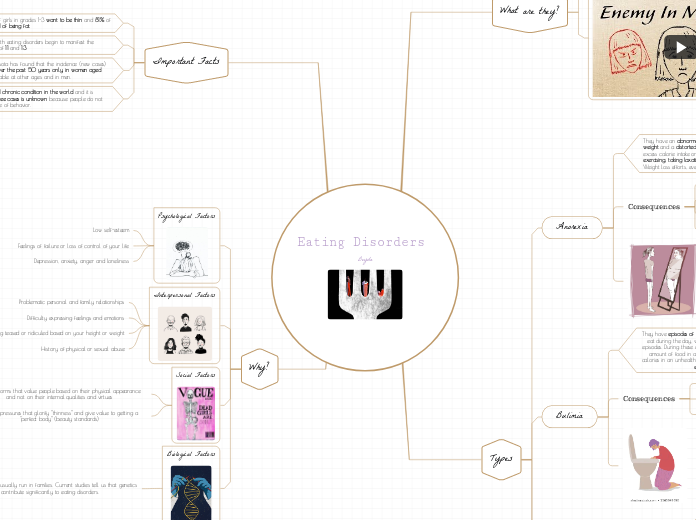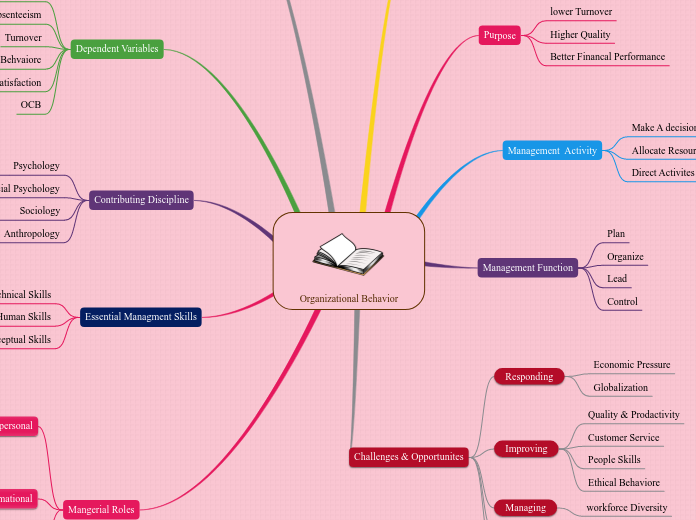Eating Disorders
Beyda
Types
Avoidant Restrictive Food Intake Disorder
Nutritional deficiencies
Significant weight loss
They avoid foods with certain sensory characteristics, such as color, texture, smell or taste; or they are worried about the consequences of eating, such as fear of choking. *They do not avoid food for fear of gaining weight.
Compulsive Eating Disorder
Overweight or Obesity
Depression
Also known as binge eating, they usually eat in excess and have a feeling of loss of control over what they eat. They may eat quickly or consume more food than they expect, even when they have no appetite, and continue to eat long after they feel too full.
Bulimia
Injuries to the stomach, throat and kidneys
Tooth decay
They have episodes of binge eating and purging. They restrict what they eat during the day, which usually causes more binging and purging episodes. During these episodes, it is normal for them to consume a large amount of food in a short time, and then try to get rid of the extra calories in an unhealthy way such as making themselves vomit, exercising excessively or taking laxatives
Anorexia
Consequences
Death
Lack of nutrients
Anemia
State of starvation
They have an abnormally low body weight, a great fear of gaining weight and a distorted perception of body weight or shape. They limit excess calorie intake or use other methods to lose weight such as over-exercising, taking laxatives or dietary supplements, or vomiting after eating. Weight loss efforts, even when body weight is low, can cause starvation.
What are they?
To help you better understand people with these Eating Disorders you can watch the following video:
Eating disorders are problems related to the way people eat. They can be very harmful to a person's health, emotions and personal
relationships.
Eating disorders generally include negative and self-critical thoughts and feelings about body weight and food, and eating habits that interfere with normal body function and daily activities.
Why?
Biological Factors
Eating Disorders usually run in families. Current studies tell us that genetics contribute significantly to eating disorders.
Social Factors
Cultural pressures that glorify "thinness" and give value to getting a "perfect body" (beauty standards)
Cultural norms that value people based on their physical appearance and not on their internal qualities and virtues
Interpersonal Factors
History of physical or sexual abuse
Being teased or ridiculed based on your height or weight
Difficulty expressing feelings and emotions
Problematic personal and family relationships
Psychological Factors
Depression, anxiety, anger and loneliness
Feelings of failure or loss of control of your life
Low self-esteem
Important Facts
Eating disorders are the third chronic condition in the world and it is estimated that one out of three cases is unknown because people do not consult a doctor for this type of behavior.
An ongoing study in Minnesota has found that the incidence (new cases) of anorexia has increased over the past 50 years only in women aged 15-24. Incidence has been stable at other ages and in men.
In children, most patients with eating disorders begin to manifest the disorder between the ages of 11 and 13.
Research shows that 42% of girls in grades 1-3 want to be thin and 81% of 10-year-old girls are afraid of being fat.









